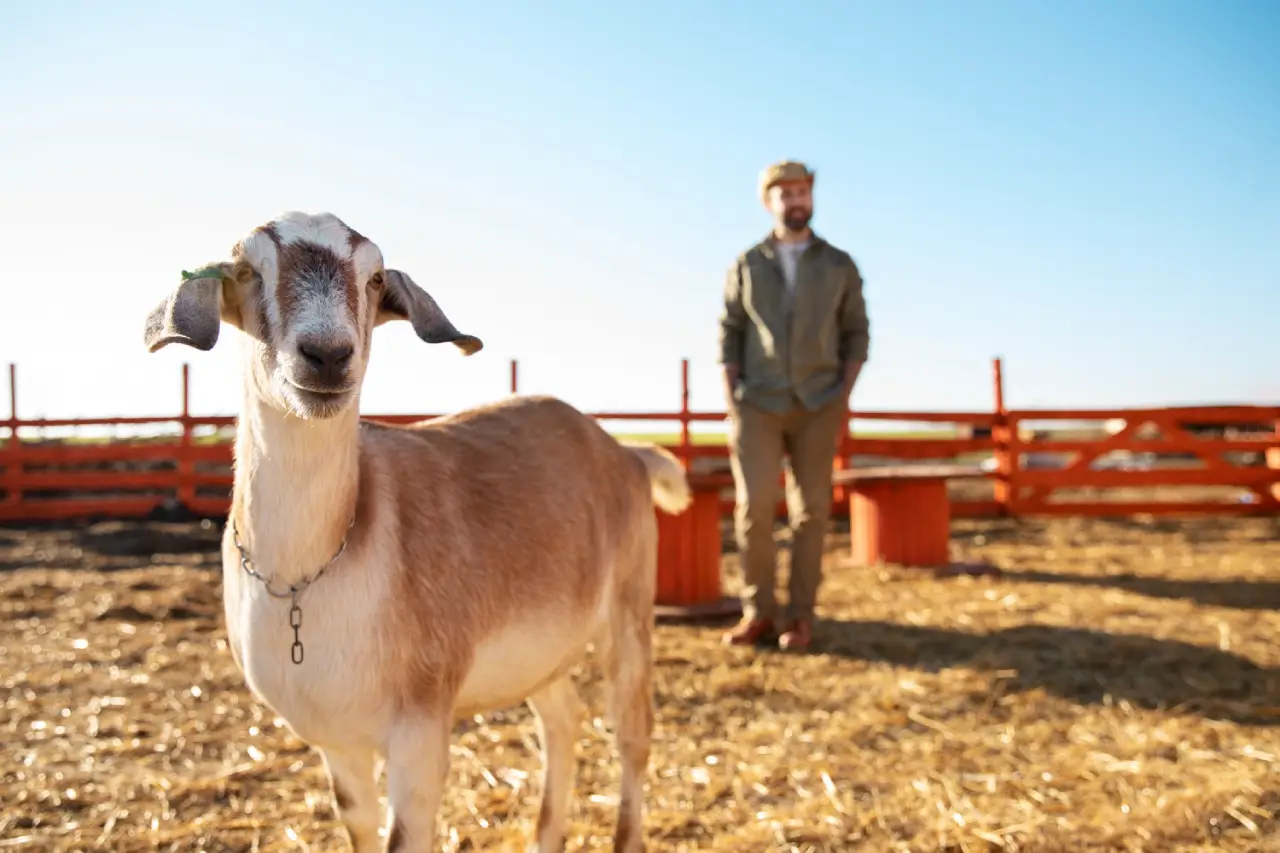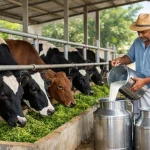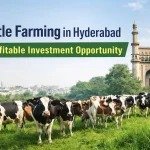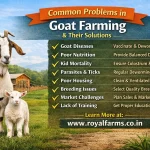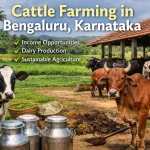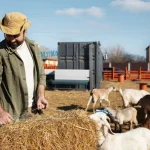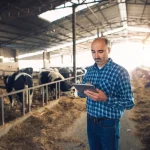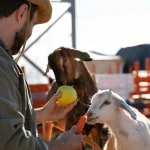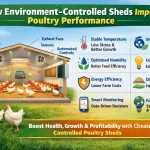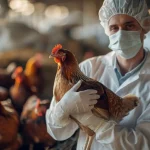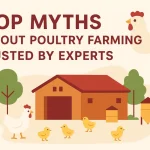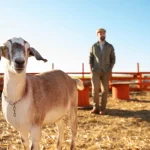Agriculture in India is evolving rapidly, and livestock farming has emerged as a reliable source of income for rural and peri-urban communities. Among all livestock options, goat and sheep farming stand out as some of the most sustainable and profitable ventures. In regions like Navi Mumbai, where agricultural land is limited but opportunities for small-scale farming are abundant, goat and sheep farming are gaining remarkable popularity.
This growth is not accidental — it’s the result of economic viability, adaptability, and growing awareness about the long-term benefits of livestock farming. Let’s explore why this sector is becoming a preferred livelihood option for many farmers and entrepreneurs in and around Navi Mumbai.
1. Low Investment, High Profitability
Table of Contents
ToggleOne of the main reasons farmers are turning toward goat and sheep farming is its low start-up cost. Unlike large livestock projects, this venture requires minimal investment in infrastructure, feed, and maintenance. Goats and sheep can thrive on locally available fodder and don’t require expensive housing.
Farmers can start with a small number of animals and gradually expand as profits grow. Because these animals reproduce quickly, herd size increases naturally over time, ensuring steady growth. For many small-scale farmers, this model has proven to be both financially manageable and scalable.
2. Ideal for Limited Land Areas
Navi Mumbai is a growing urban region where agricultural land is relatively scarce. However, goat and sheep farming is highly space-efficient. These animals can be raised comfortably in small sheds or open enclosures, even on a small piece of land.
Their ability to graze on natural vegetation and require minimal feed makes them perfect for semi-urban or peri-urban conditions. Farmers with limited land can still manage productive farms, making this form of agriculture an ideal choice in regions like Panvel, Taloja, Khalapur, and surrounding areas.
3. Adaptability to Local Climate
The climate of Navi Mumbai and surrounding regions is favorable for goat and sheep rearing. These animals are hardy by nature and can easily adapt to varying weather conditions — from humid coastal environments to slightly drier inland areas.
Their natural resistance to common diseases and ability to survive on modest feeding conditions make them a dependable choice. This adaptability ensures fewer losses, reduced veterinary costs, and a consistent rate of growth, even under moderate management practices.
4. Sustainable and Eco-Friendly Livelihood Option
In today’s world, sustainability has become a key concern across all industries — including agriculture. Goat and sheep farming promote an eco-friendly model of income generation. These animals produce organic manure that enriches soil quality, making it highly beneficial for integrated farming systems.
Farmers can use this manure to grow organic crops or sell it as organic fertilizer, creating an additional source of income. Moreover, goats and sheep help in controlling weeds and maintaining the natural vegetation balance of grazing areas. This makes their farming practice both environmentally friendly and economically sound.
5. Government Support and Training Programs
The Government of Maharashtra and national institutions like NABARD have introduced several initiatives to promote goat and sheep farming. These include financial assistance, training programs, and breed improvement projects.
Farmers in Navi Mumbai can take advantage of:
- Subsidies for building sheds and purchasing livestock
- Veterinary support and vaccination programs
- Training on nutrition, breeding, and modern farming techniques
By participating in these programs, local farmers can enhance their knowledge, improve productivity, and ensure better animal health and welfare.
6. Opportunities for Women and Youth Entrepreneurs
Goat and sheep farming is not only an agricultural activity but also a source of empowerment for women and rural youth. It provides flexible working hours, steady income, and low operational stress — making it suitable for individuals who wish to start a small-scale enterprise.
In many villages around Navi Mumbai, self-help groups (SHGs) and young entrepreneurs are already participating in livestock farming. With the help of institutions like Royal Farms, they receive guidance on best practices, business management, and marketing strategies, leading to improved self-reliance and community development.
7. Diverse Utility and By-Products
While goat and sheep farming primarily focus on animal rearing, there are multiple benefits beyond basic livestock management. These animals provide:
- Wool and fiber from certain sheep breeds
- Organic manure for agriculture
- Goat milk, known for its digestibility and nutritional benefits
- Breeding stock that can be sold to other farmers
Such diversity in output ensures that farmers are not dependent on a single source of income. Instead, they can create multiple revenue streams from the same farming activity.
8. Integration with Modern Farming Practices
Modern goat and sheep farming in Navi Mumbai is not limited to traditional methods. With the growing use of technology in agriculture, farmers now use scientific feeding techniques, housing designs, and breeding management systems.
Innovations like controlled feeding, regular health monitoring, and automated watering systems help farmers maintain productivity and ensure animal well-being. Many modern farms also implement record-keeping systems to track each animal’s health, growth, and breeding cycle — ensuring efficiency and transparency in operations.
9. A Reliable Source of Year-Round Income
Unlike seasonal crops, goat and sheep farming provides year-round income. Because these animals breed multiple times a year, farmers can maintain a consistent livestock population and generate income continuously through the sale of offspring, milk, or other by-products.
This stability makes it an attractive venture for farmers in semi-urban areas like Navi Mumbai, where other agricultural activities may depend heavily on monsoons or market fluctuations.
10. The Role of Royal Farms in Promoting Livestock Development
At Royal Farms, we are committed to transforming goat and sheep farming into a modern, profitable, and sustainable enterprise. Our goal is to provide farmers, entrepreneurs, and investors with the knowledge and tools needed to start and manage successful livestock farms.
We offer:
- Expert consultation for farm setup and management
- Breed selection assistance for better productivity
- Guidance on housing, feed, and animal care
- Support with government schemes and documentation
- Training programs on sustainable livestock management
By promoting ethical and modern farming practices, Royal Farms aims to build a strong livestock farming community across Navi Mumbai and neighboring regions.
Conclusion
The rise of goat and sheep farming in Navi Mumbai reflects a larger shift toward sustainable and self-reliant agriculture. With limited land availability, changing climate patterns, and growing urban demand for farm products, this sector offers a balanced combination of simplicity, stability, and profitability.
Whether you are a beginner or an experienced farmer, goat and sheep farming present an opportunity to create a long-term, eco-friendly, and rewarding livelihood. Supported by government initiatives and professional guidance from Royal Farms, this is the right time to invest in livestock farming and contribute to a greener and more prosperous rural economy.

